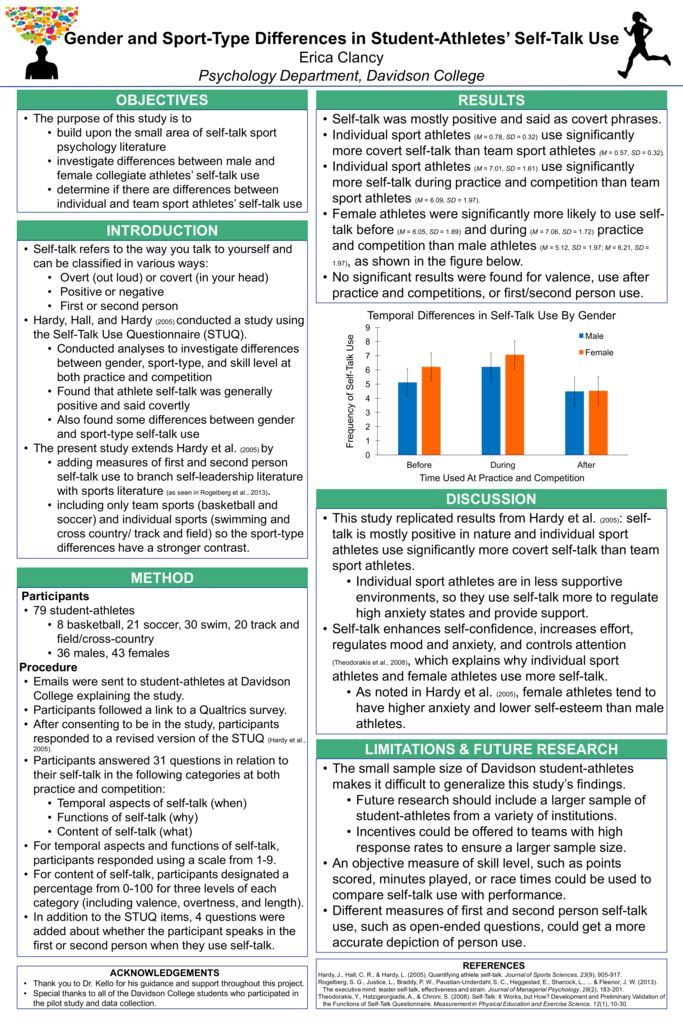Gender and Sport-Type Differences in Athletes’ Self-Talk Use
Self-talk, or the way you talk to yourself, has been a growing area of research for industrial-organizational, clinical, leadership management, and sport psychologists. There are several components to self-talk including whether it is positive or negative, said out loud or in your head, and motivational or instructional in nature. As relatively new area in sport psychology, more research is needed to solidify findings in these areas and how variables like gender and sport type affect athletes’ self-talk use. To examine the differences between gender and sport type on athletes’ use of self-talk, a survey, modified from Hardy et al. (2005), was sent to Davidson College student-athletes on the basketball, soccer, cross country, track and field, and swim teams on their use of self-talk at practice and competition, with 79 student-athletes responding. Analyses indicate that individual sport athletes use significantly more overt self-talk and more self-talk during practice and competition than team sport athletes, and that female athletes use self-talk before and during practice and competition significantly more than male athletes. While some of these findings are consistent with previous research, it would be beneficial to replicate the study with a larger, more diverse sample.
